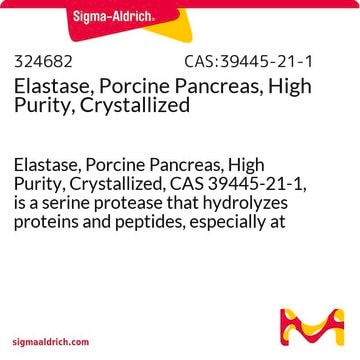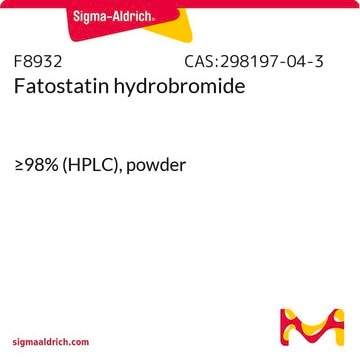569371
SREBP Processing Inhibitor, Betulin
The SREBP Processing Inhibitor, Betulin, also referenced under CAS 473-98-3, controls the biological activity of SCAP (SREBP cleavage activating protein). This small molecule/inhibitor is primarily used for Cell Signaling applications.
Synonym(s):
SREBP Processing Inhibitor, Betulin, Lup-20(29)-ene-3β,28-diol, Sterol Regulatory Element Binding Protein Processing Inhibitor, Betulin
About This Item
Recommended Products
Quality Level
Assay
≥95% (NMR)
form
powder
manufacturer/tradename
Calbiochem®
storage condition
OK to freeze
color
off-white
solubility
DMSO: 3.5 mg/mL
shipped in
wet ice
storage temp.
2-8°C
InChI
1S/C30H50O2/c1-19(2)20-10-15-30(18-31)17-16-28(6)21(25(20)30)8-9-23-27(5)13-12-24(32)26(3,4)22(27)11-14-29(23,28)7/h20-25,31-32H,1,8-18H2,2-7H3/t20-,21+,22-,23+,24-,25+,27-,28+,29+,30+/m0/s1
InChI key
FVWJYYTZTCVBKE-ROUWMTJPSA-N
General description
Warning
Other Notes
Legal Information
Storage Class Code
11 - Combustible Solids
WGK
WGK 3
Certificates of Analysis (COA)
Search for Certificates of Analysis (COA) by entering the products Lot/Batch Number. Lot and Batch Numbers can be found on a product’s label following the words ‘Lot’ or ‘Batch’.
Already Own This Product?
Find documentation for the products that you have recently purchased in the Document Library.
Our team of scientists has experience in all areas of research including Life Science, Material Science, Chemical Synthesis, Chromatography, Analytical and many others.
Contact Technical Service








